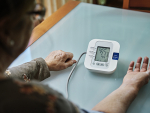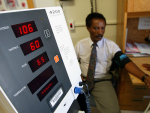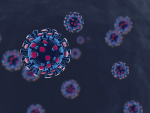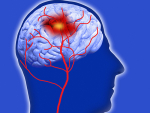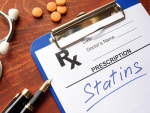Displaying items by tag: department of epidemiology
A new study finds there are multiple ways to achieve the same health benefits from exercise — as long as your exercise “cocktail” includes plenty of light physical activity but not too much sitting.
Tagged under
Final results of the UAB-led national study on high blood pressure confirm a target goal of less than 120 mm Hg reduces adverse events.
Tagged under
Differences in DNA methylation correlated with differences in heart-failure outcomes, as measured by two-year mortality.
Tagged under
Preserving brain health in an aging population is a growing concern in the United States. An estimated one in five Americans 65 years and older has mild cognitive impairment, and one in seven has dementia.
Tagged under
The list was made by a group that aspires to bolster and increase diversity across all scientific fields, promote retention through the “leaky academic pipeline,” and broaden academic and industrial awareness of diversity and inclusion.
Tagged under
- release
- neuroscience
- school of medicine
- school of public health
- college of arts and sciences
- department of chemistry
- department of neurology
- department of medicine
- department of epidemiology
- department of psychology
- department of microbiology
- department of neurobiology
- department of physics
- division of endocrinology diabetes and metabolism
- division of hematology and oncology
- comprehensive neuroscience center
- oneal comprehensive cancer center
Allowing family members back into your home is a challenging thought for many, but UAB experts share ways we can safely reintegrate under one roof.
Tagged under
Funding from the American Heart Association will help promote preventive attitudes regarding cardiovascular health through a virtual campaign.
Tagged under
The study suggests that depressive symptoms are a nontraditional risk factor for stroke, something medical professionals need to take into account when talking with their patients.
Tagged under
American Heart Association special report highlights trends in awareness among women in the United States regarding heart disease.
Tagged under
This study of ischemic stroke patients is the first to associate the neutrophil-lymphocyte ratio in patients with COVID-19 and ischemic stroke and stroke severity.
Tagged under
Tagged under
This is the first comprehensive genomic study of cervical cancers in sub-Saharan Africa, with a focus on tumors from 212 Ugandan patients. The findings can lead to better treatments.
Tagged under
Epidemiologists answer questions about what reopening the state means, the impact it may have on people in urban and rural areas, and what you can do to protect yourself and your family.
The coronavirus crisis has introduced a lot of new words into daily vocabulary. Get translations to better understand how the disease spreads and what can be done to stop it.
Tagged under
People who spent their childhood or early adulthood in the Stroke Belt are more likely to develop cognitive impairment later, even if they have moved away.
Tagged under
The findings emphasize the importance of wide-reaching public health interventions to prevent hypertension among this population.
Tagged under
Tagged under
These findings suggest that large geographic treatment disparities in high-intensity statin use after a heart attack are poorly understood and require further research and intervention.
Tagged under
Measuring blood pressure at home will ensure doctors are treating people who need to be treated for high blood pressure and are not starting patients on medication who may not have hypertension.
Tagged under
UAB gynecologic oncologist Huh will serve in a leadership role within a national gynecologic organization.
Tagged under

